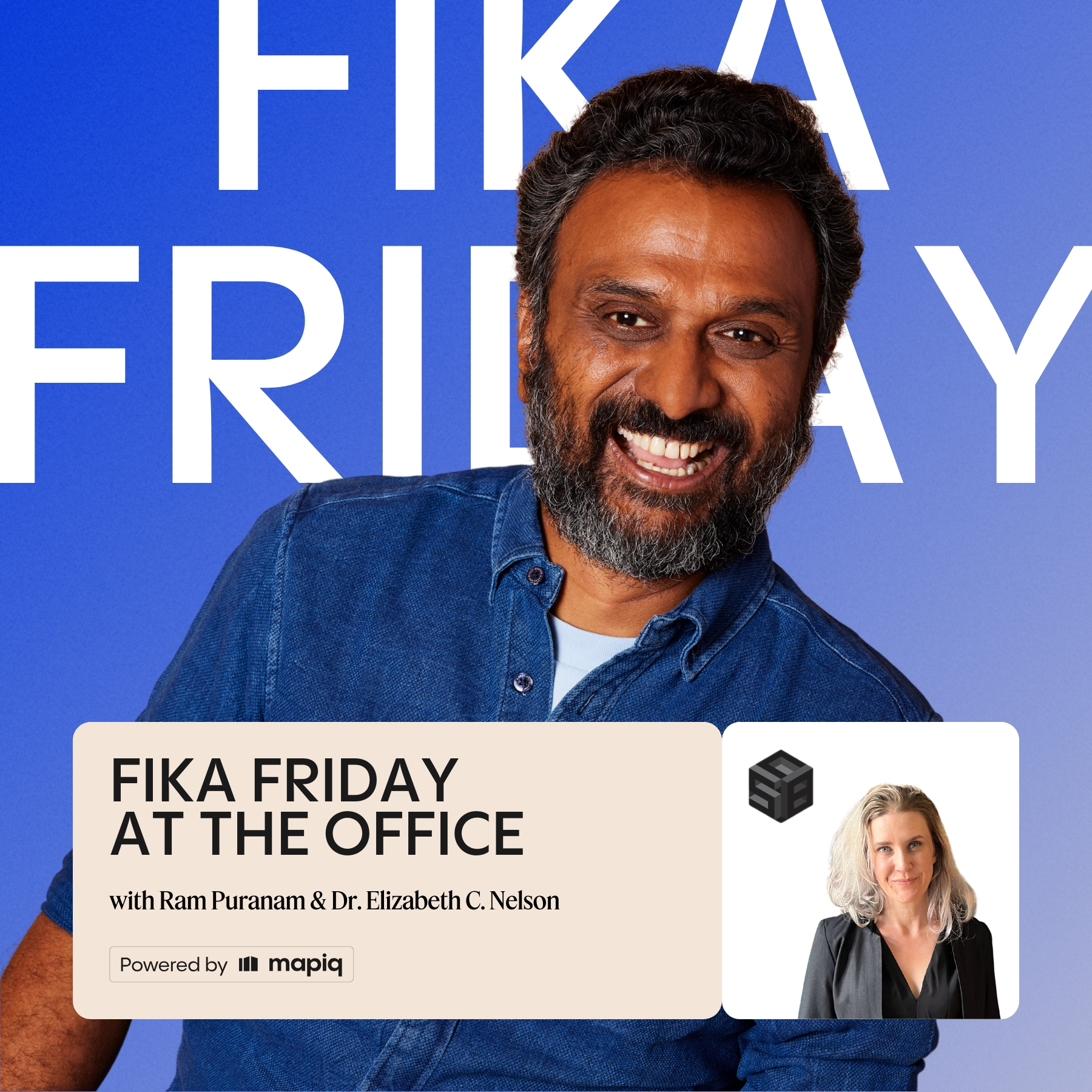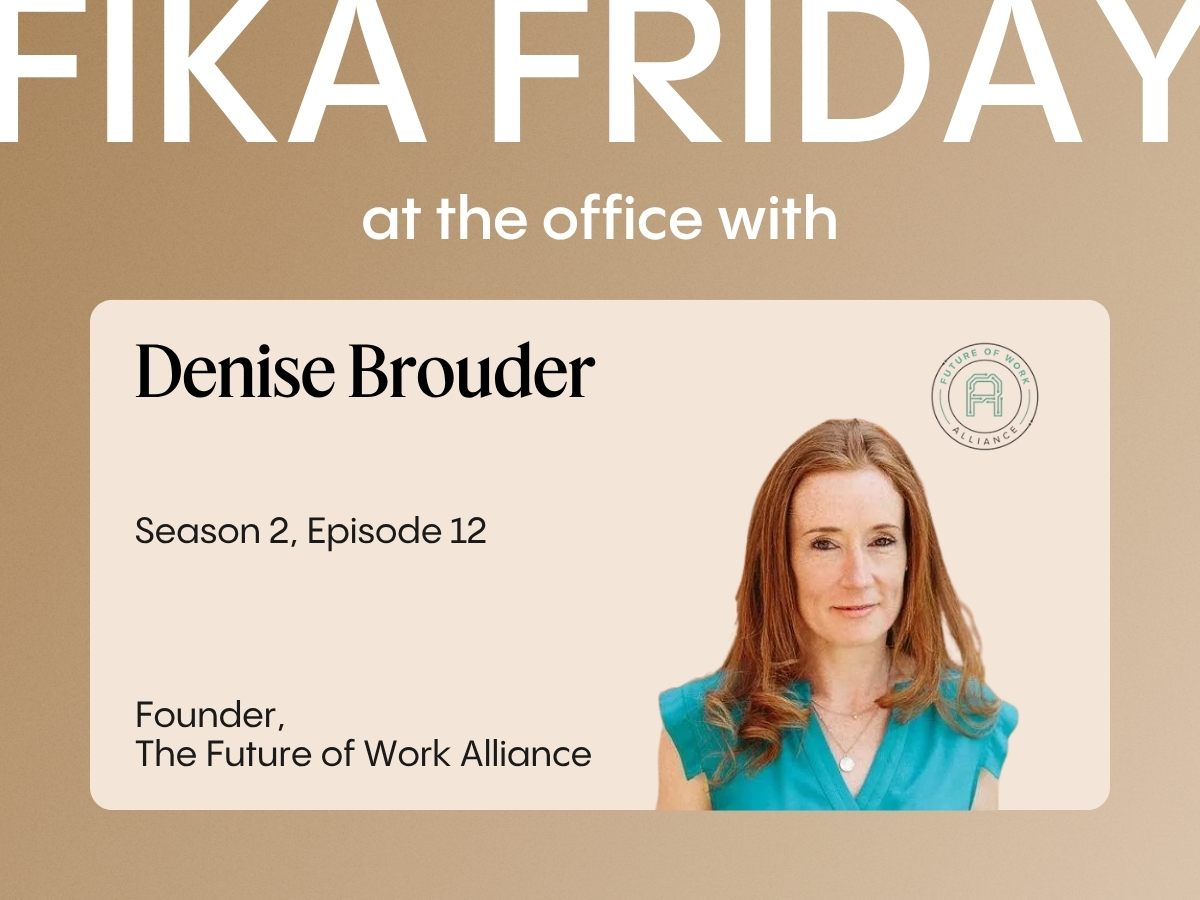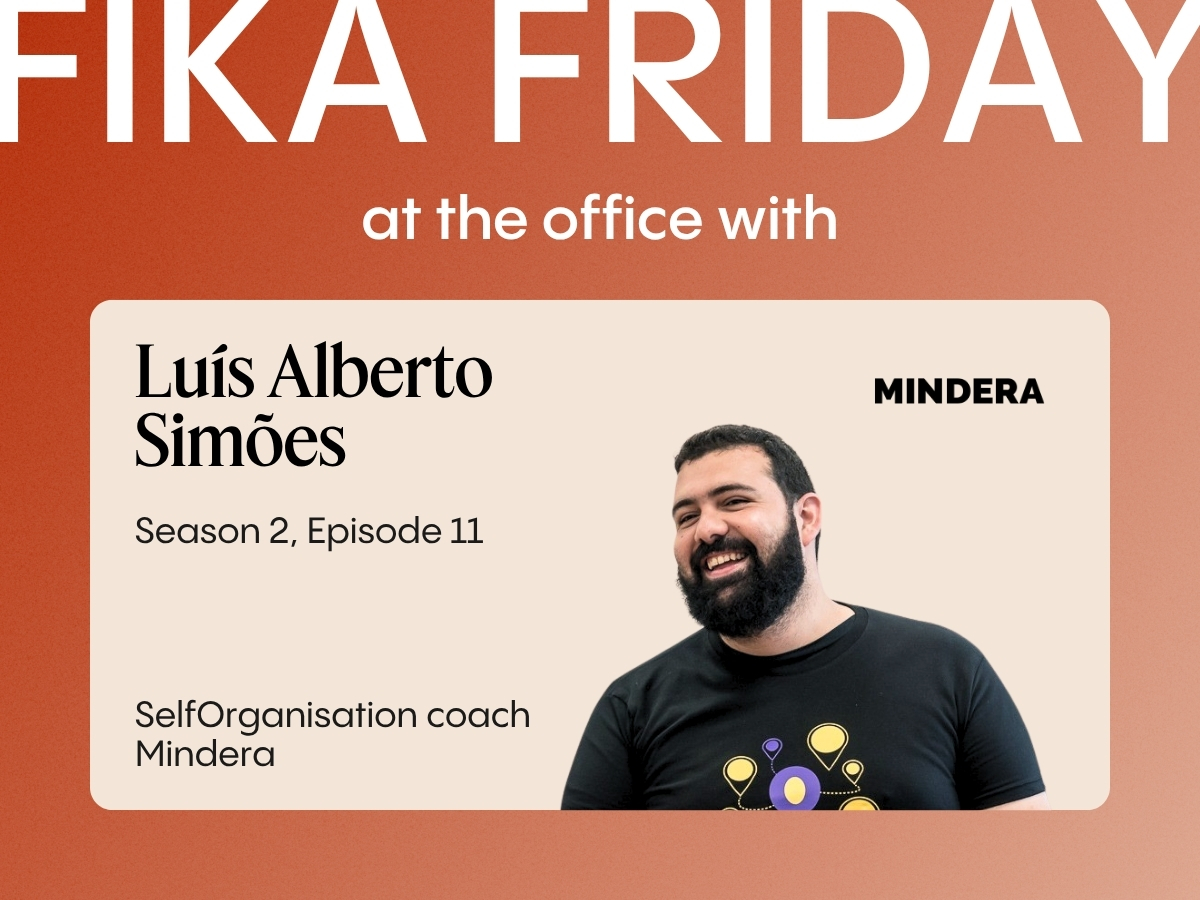.jpg)
When you speak with Anne Sofie Fedders, you quickly understand why leaders turn to her for real insight. A licensed business psychologist and partner at Kløgt (which translates to “making wise decisions”), Anne Sofie helps organizations build cultures that aren’t just efficient, but human.
In this episode of Fika Friday at the Office, we spoke over coffee about leadership, well-being, flexible work, and the quiet (but powerful) psychology that shapes high-performing teams. With experience spanning Deloitte, LEGO, and her own consultancy, Anne Sofie brings both warmth and sharp clarity to the conversation.
“We all need to feel competent. We all need to feel we belong. And we all need autonomy. If those are missing, well-being begins to slip.”
The Myth of Boundless Flexibility
Flexibility has become the holy grail of modern work, but Anne Sofie challenges that narrative. “Flexibility sounds great,” she told me, “but if there’s no clear setup, it can backfire fast.”
She explained that without structure, even the most progressive workplace can slip into confusion. It’s about giving people a foundation they can trust. When people don’t know where they stand, uncertainty replaces autonomy.
This is a tension we often see at Mapiq: organizations want to offer freedom, but forget the psychological safety that comes from clarity, agreements, and shared expectations.
Well-being Is a Leadership Responsibility
Anne Sofie is quick to highlight a gap in many organizations: leaders are expected to support everyone else, but who supports them?
“We often focus on the team’s wellness, but if a leader burns out, it spills down to everyone.”
The solution is equipping leaders with tools for reflection, boundary-setting, and emotional regulation. Because when leaders are grounded, their teams feel it. When they’re not, their teams carry the consequences.
Belonging, Autonomy, and the Space In Between
We talked about what happens when flexibility is granted without the fundamentals of connection or purpose. “Autonomy is good,” Anne Sofie said. “But if it erodes belonging or clarity, it becomes a problem.”
Her advice? Don’t offer freedom without checking if people feel seen, valued, and understood. Workplaces must be intentional about helping people feel both trusted and included.
Proximity Bias Isn’t New
One of Anne Sofie’s simplest but most insightful points: hybrid work made proximity bias more visible.
The fix? Train managers to be aware of bias. Design systems to ensure visibility isn’t mistaken for value. And don’t assume equality just because everyone’s on the same video call.
Culture Is Built in the Small Moments
Perhaps the most important theme of our conversation was this: culture isn’t declared. It’s demonstrated.
From onboarding to team rituals, from shared goals to hallway conversations - it’s the day-to-day that makes or breaks a company’s culture. Leaders can’t mandate it from a deck. Teams have to live it, together.
Designing Work With Intention
Looking ahead, Anne Sofie is hopeful, but realistic. Offices will continue to matter, but not for old reasons. Control-based models are giving way to connection-driven strategies.
“The future of work is slow to build, but fast to break.”
That means we can’t just set policies and walk away. We have to check in, re-align, and co-create the way we work, especially in hybrid settings where assumptions multiply quickly.
At Mapiq, we often say: people don’t just need desks, they need direction. Anne Sofie reminded me that direction means understanding.
Final Thoughts
Anne Sofie Fedders brings a deeply human perspective to workplace strategy — one that acknowledges complexity without overcomplicating it. Her view of leadership is refreshingly grounded: show up, be consistent, create safety, and check in often.
The future of work isn’t about mastering every trend or tool. It’s about choosing how we relate to each other, to our work, and to the spaces in between.
Listen to the full episode with Anne Sofie Fedders to learn how psychology, structure, and trust shape high-performing teams. Catch Fika Friday at the Office wherever you get your podcasts.




